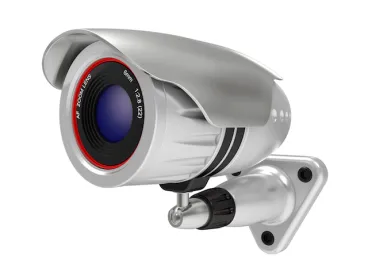The National Labor Relations Board has established a new test for evaluating the lawfulness of an employer’s facially neutral workplace policies and rules.
Among the most consequential of the Board’s recent bombshell NLRB decisions was The Boeing Company, 365 NLRB No. 154 (Dec. 15, 2017), in which the NLRB overruled its controversial Lutheran Heritage-Livonia (343 NLRB 646 [2004]) standard for evaluating whether facially neutral workplace rules and policies violate employees’ rights under the National Labor Relations Act (NLRA).
In a 3-2 decision, the Board held that, in cases assessing the legality of facially neutral policies, it will balance the “the nature and extent of the potential impact on NLRA rights” against the “legitimate justifications associated with [a] rule.”
Applying the new standard to the facts of the case, the Board found the employer had not violated the Act by maintaining a rule prohibiting employees from using cameras and camera-capable devices (e.g., cell phones, laptops, and personal computers with web cameras) without a valid business need and an approved “Camera Permit.” The company maintained this no-camera rule for both security and business reasons, since it performs classified work as a federal contractor.
While the Board acknowledged the new rule could affect employees’ rights under Section 7 of the NLRA, it found the possible impact did not outweigh the employer’s interest in maintaining secrecy around its products, particularly because secrecy is imposed, in part, by federal rules applicable to a federal contractor. Section 7 of the NLRA gives employees the right to engage in “concerted activities for the purpose of collective bargaining or other mutual aid or protection.”
Old Standard
The Board’s previous standard for evaluating facially neutral rules, set forth in Lutheran Heritage, involved a three-prong test to assess the lawfulness of workplace rules and policies. The third prong (under which the Board analyzed whether employees could “reasonably construe” rules and policies to prohibit Section 7 activity) often resulted in rules and policies being found unlawful.
Lutheran Heritage had long frustrated employers, who argued the vague standard prevented them from being able to predict accurately whether a rule or policy would pass NLRB muster. Employers also argued that Lutheran Heritage emphasized employees’ rights at the expense of employers’ interests. Acknowledging this, the majority stated, “Though well-intentioned, the Lutheran Heritage standard prevents the Board from giving meaningful consideration to the real-world ‘complexities’ associated with many employment policies, work rules and handbook provisions.” The majority continued, “Lutheran Heritage produced rampant confusion for employers, employees and unions.”
Chairman Miscimarra
Former Board Chairman Philip Miscimarra (whose term expired on December 16, 2017) made clear that the Board should reverse Lutheran Heritage as soon as possible. For example, in William Beaumont Hospital, 363 NLRB No. 162 (Apr. 13, 2016), while the Board majority reaffirmed Lutheran Heritage, Miscimarra stated in a forceful dissent that, under the Lutheran Heritage standard, the Board continued to find facially neutral policies unlawful, even when not applied in an unlawful manner. Miscimarra criticized the Board majority for refusing to correct the Lutheran Heritage test, which he argued led to “arbitrary results” and had caused “extensive confusion” for employers. In its place, Miscimarra proposed a balancing test much like what the Board now has adopted.
Categories
The Board also announced that, prospectively, three categories of rules will be employed to provide greater clarity and certainty to employees, employers, and unions:
-
“Category 1 will include rules that the Board designates as lawful to maintain, either because (i) the rule, when reasonably interpreted, does not prohibit or interfere with the exercise of NLRA rights; or (ii) the potential adverse impact on protected rights is outweighed by justifications associated with the rule.” The Board’s examples of Category 1 rules include no-camera requirements (e.g., the one found lawful in Boeing) and rules requiring “harmonious interactions and relationships” (such as the rule at issue in William Beaumont).
-
“Category 2 will include rules that warrant individualized scrutiny in each case as to whether the rule would prohibit or interfere with NLRA rights, and if so, whether any adverse impact on NLRA-protected conduct is outweighed by legitimate justifications.”
-
“Category 3 will include rules that the Board will designate as unlawful to maintain because they would prohibit or limit NLRA-protected conduct, and the adverse impact on NLRA rights is not outweighed by justifications associated with the rule.” The Board said a rule that prohibits employees from discussing wages or benefits is one it would classify under Category 3.
The Board noted the categories are not part of the analysis it will use in determining whether a rule is lawful. After an analysis using the above balancing test, each rule will be placed in one of the three categories. (The Board said, “The above three categories will represent a classification of results from the Board’s application of the new test. The categories are not part of the test itself. The Board will determine, in future cases, what types of additional rules fall into which category.”)
According to the Board, although the maintenance of particular facially neutral rules may be lawful, the application of such rules to employees who have engaged in NLRA-protected conduct may violate the Act, depending on the particular circumstances in a given case.
***
While it is difficult to predict how the Board’s new standard will apply to individual workplace rules and policies, it is likely that some rules found unlawful under the old standard will be deemed lawful now. Indeed, the Board held that facially neutral rules such as those requiring employees to act “respectfully” or “professionally,” which might have succumbed to Lutheran Heritage, almost certainly will survive under the new standard. The Board wrote, “To the extent the Board has held that it violates the Act to maintain rules requiring employees to foster ‘harmonious interactions and relationships’ or to maintain basic standards of civility in the workplace, those cases are hereby overruled.”








 />i
/>i

